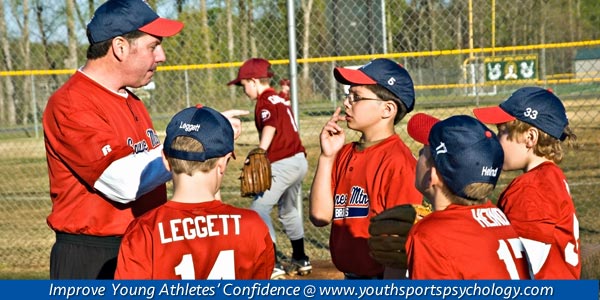Communicating With Young Athletes
We recently checked in with sports dad Michael Wood–chief fitness officer at Koko Fitness Inc.– about his daughter’s making her high school basketball team as a 6th grader.
This was a double-edged sword for Wood…
On the one hand, he was happy she had the opportunity to play with girls who had similar abilities. On the other hand, he didn’t want to pressure her too much.
“We didn’t want to push her along too fast. The big thing was the mental aspect,” he says.“Could she play with juniors and seniors in high school?”
To help their daughter, Julia, cope with the challenge of playing with such older girls, Wood and his wife emphasized open communication.
“We always talk to her. We say, ‘Skill-wise, you are like a high school player, but you just turned 13’,” he says.
One of Julia’s biggest challenges was being the second highest scorer. The other girls often looked to her to score.
“Why me?” Julia would ask.
“I’d say, ‘Even though you are young, you are talented. It’s something you have to take step by step’,” explains Wood.
More than anything, Wood and his wife want to ensure Julia is enjoying herself.
“She has a smile on her face, and loves the game. That’s what we look for-or we make some adjustments,” he says.
That’s the right attitude for parents of all athletes–whether they play up, like Julia, or take part in a team with kids their age.
You need to keep communicating with them–and you need to ensure they’re having fun.
To communicate well with your young athlete, it’s important to ask the right questions.
Asking your child the right questions shows your child what you think is important.
For example, if you ask, “Did you win?” Your child will think winning is most important. If you ask, “Did you have fun?” She will assume having fun is most important.
Effective questions include:
- Open ended questions – Don’t rely on simple yes/no questions
- Probing questions – Be sure to ask the child to elaborate
- Process-focused questions – Focus on process, instead of results such as wins or scores
- Gentle questions – Ask questions that don’t attack your young athlete
Want to learn more about how to become the Ultimate Sports Parent? Check our our workbook/CD program at:
You’ll learn:
- How much pressure is too much
- How to deal with negative coaches
- How to cope with little playing time
- And much more!
Check out our Sports Parenting Workbook Program!
Related Articles on Youth Sports:
- Building Confidence With Supportive Communication
- Why Communication is More Important for Athletes
- Communication to Build kids’ Confidence [Podcast]
*Subscribe to The Sports Psychology Podcast on iTunes
*Subscribe to The Sports Psychology Podcast on Spotify
Help Young Athletes Boost Confidence in Sports!
Every day, we receive letters from parents like you who want their children and teens to excel in sports. However, these parents can see fear, doubt, and frustration on the faces of their kids who struggle with the “inner” game of sports. But these parents have no idea how to help their kids overcome the worries, expectations and self-defeating thoughts that prevent their young athletes from feeling confident and successful.
You can benefit from our 15-plus years’ of work in sports psychology and sports parenting research. Now, you can tap into our secrets to sports success through a cutting-edge, 14-day program that helps young athletes overcome the top “mental game” challenges that sports parents face—and the top challenges young athletes face.


